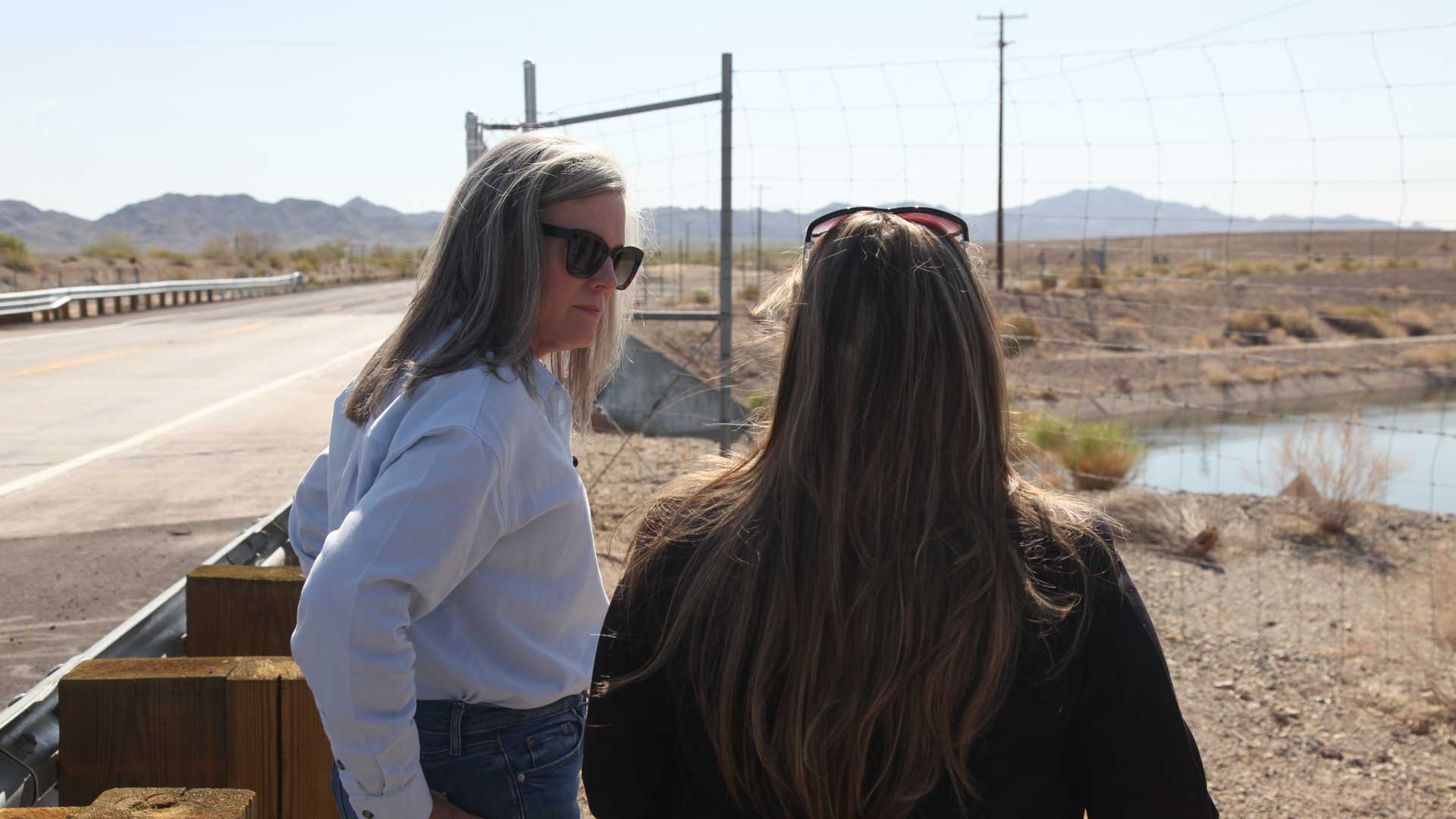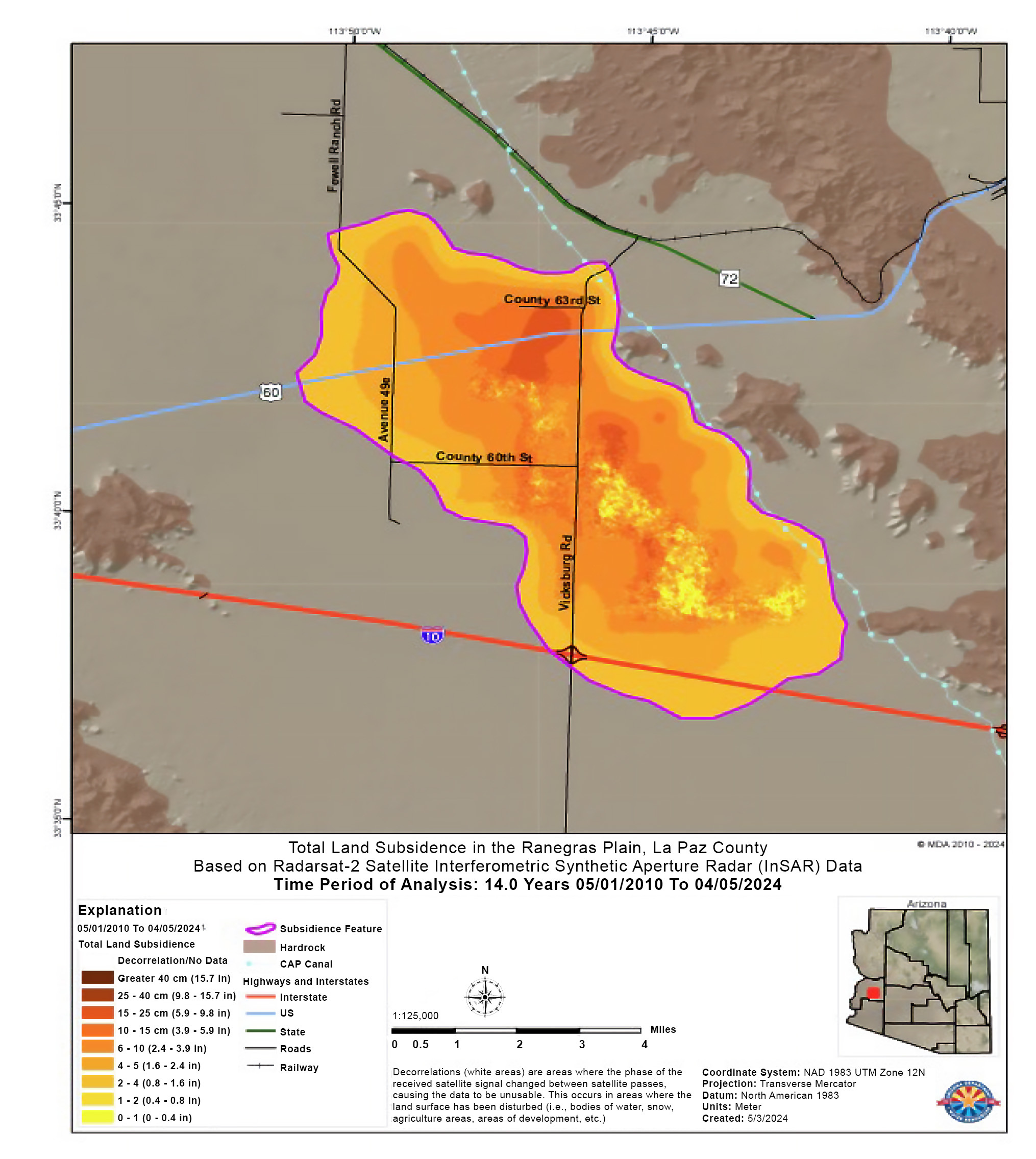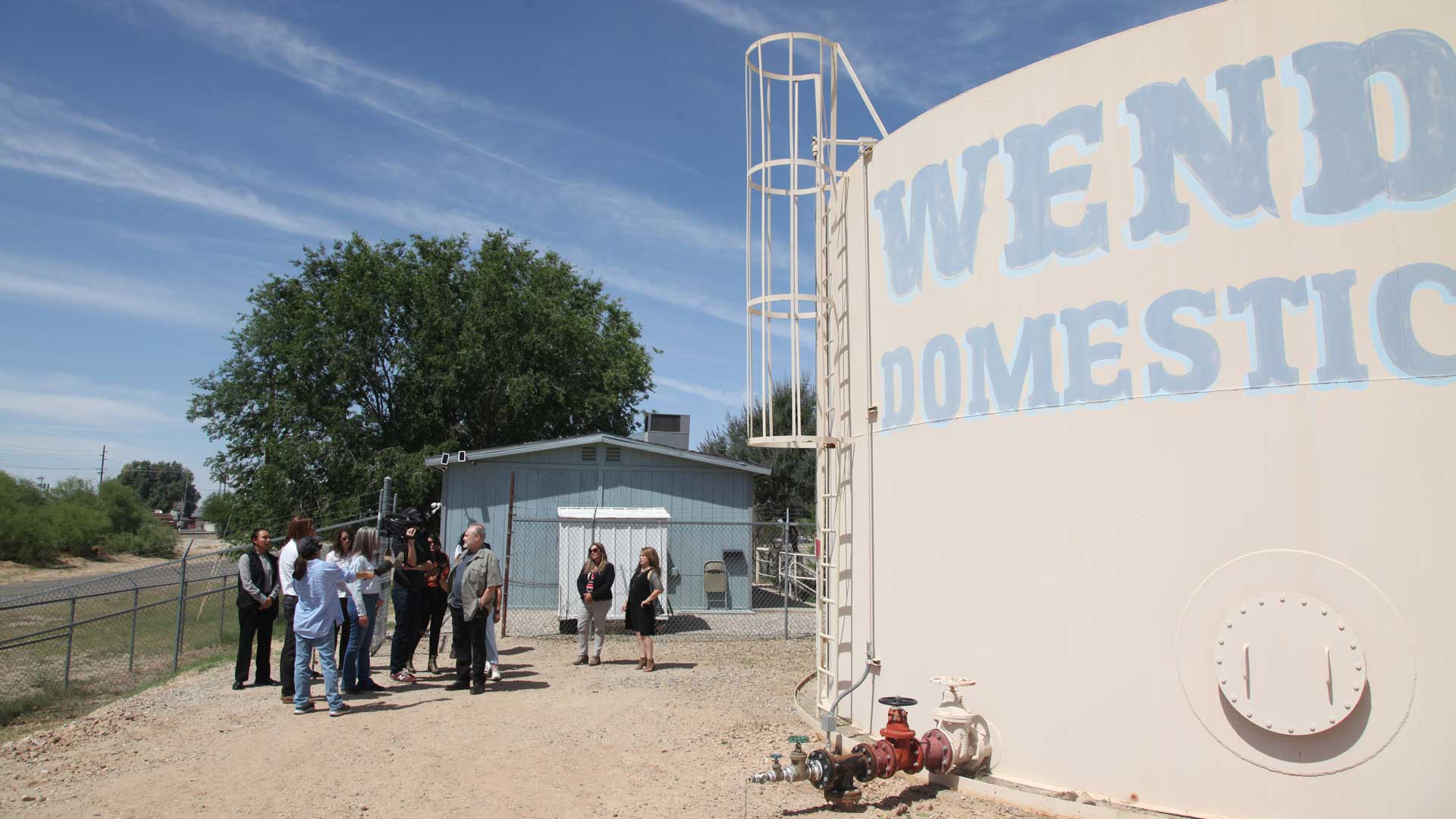 Governor Katie Hobbs with La Paz County Supervisor Holly Irwin at the CAP canal in Salome, Arizona. May 2025
Governor Katie Hobbs with La Paz County Supervisor Holly Irwin at the CAP canal in Salome, Arizona. May 2025
Governor Katie Hobbs spent a morning driving through western La Paz County, meeting with homeowners, business owners, and elected officials to learn more about the water situation.
The water issues in La Paz County are similar to the ones found in other rural areas. Many in the county point to Fondomonte as the bad actor. The sprawling alfalfa farm is owned by a member of the Saudi royal family and has the money to sink wells to a much deeper depth than local farmers who say the excessive pumping by Fondomonte and other large corporate farms is causing aquifer levels to drop which causes local wells to go dry.
Hobbs heard from local residents and business owners who had to spend more than $100,000 each to have their wells deepened so they could still have water.
What Fondomonte is doing is not illegal, but Hobbs wants to start regulating groundwater in rural areas. She is pushing a bill in the legislature, but negotiations over it have been at a standstill since April.
Hobbs said she could be convinced to call a special session to deal with it if state lawmakers don’t send her a solution by the time they end their session this summer. But she says there has to be a good-faith effort.
“I’m not going to just futilely call a session if they’re refusing to come to the table,” Hobbs said.
Last year, Hobbs made a similar tour of the Willcox area, which is facing huge groundwater problems.
After that trip, the state put an Active Management Area (AMA) in place, even though voters in the area had previously turned that idea down.
 VIEW LARGER This map of subsidence in the area around Fondomonte's farm is included in the Arizona Attorney General's lawsuit.
VIEW LARGER This map of subsidence in the area around Fondomonte's farm is included in the Arizona Attorney General's lawsuit.
Fondomonte is not the only large company that now owns land and therefore water rights in La Paz County. Water Asset Management (WAM),a hedge fund that traces back to a company registered in the Cayman Islands, an international haven for corporations, paid $100 million last year for agricultural land in La Paz County near Wenden.
 Governor Katie Hobbs with Gary Saiter at the Wenden Water Improvement District. May 2025
Governor Katie Hobbs with Gary Saiter at the Wenden Water Improvement District. May 2025
This week, Gary Saiter, the head of the Wenden Water Improvement District, told Hobbs that even though there are problems with land subsidence due to the falling aquifer levels, he doesn’t think an AMA is the answer.
“I don’t want to put us in a situation like Willcox, while I know that the AMA and the things that they’re trying to do there will make a difference, I hope…it’s almost like it’s too little and too late,” Saiter said.
And Hobbs agreed.
“I have the tool of declaring an AMA, but I know it’s not the best tool for every community, which is why we’re pushing for this more flexible rural groundwater management framework,” Hobbs told Saiter.
Hobbs wrapped up her La Paz tour with a roundtable of bipartisan local elected officials from across Arizona. All represented rural areas, and they had a message for the governor and state lawmakers: stop arguing and come up with a solution.
A number of bills dealing with rural groundwater have been sent to Hobbs this legislative session, but she has vetoed them all. She told reporters none of them would have accomplished anything meaningful, so she is holding out for the larger, stalled proposal.
To learn more about water issues in La Paz County and the history of Saudi involvement in the state, listen to Season 3 of AZPM's award-winning water podcast Tapped

By submitting your comments, you hereby give AZPM the right to post your comments and potentially use them in any other form of media operated by this institution.